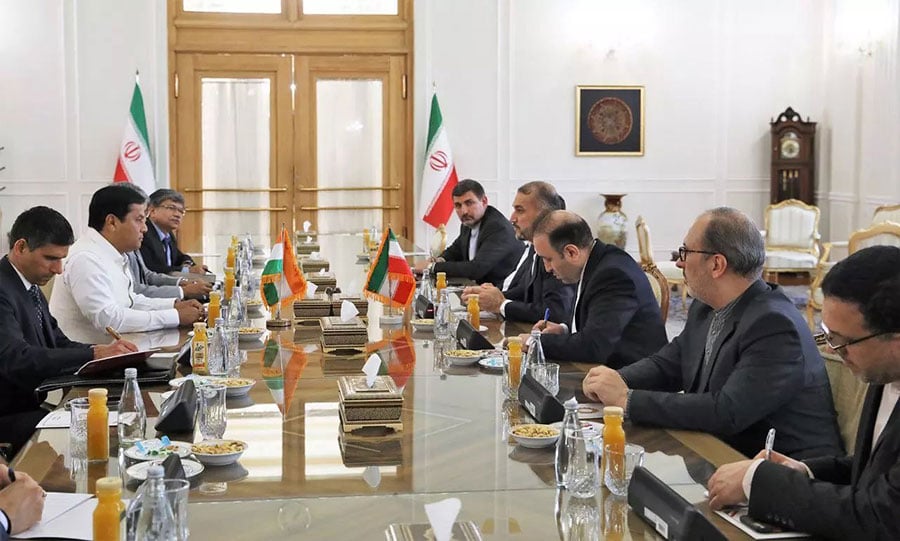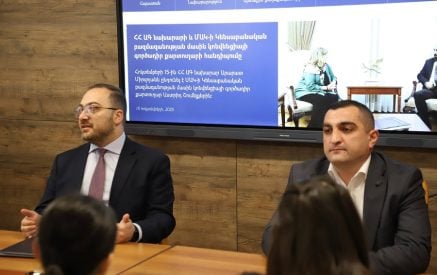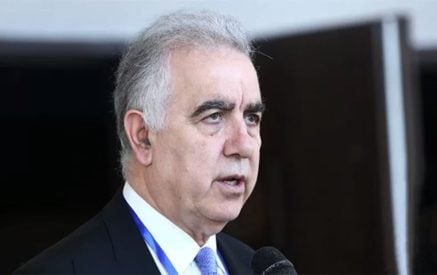by Yeghia Tashjian
On May 13, 2024, Iran and India signed a historic deal under which New Delhi was granted the right to develop and operate the Iranian port of Chabahar on the Gulf of Oman. India has been eying this port for the past two decades to export goods to Iran, Afghanistan and Central Asian countries and bypass the Chinese-developed ports of Gwadar and Karachi in Pakistan.
What is the significance of this deal for India and Iran?
Read also
Commenting on the deal after the signing ceremony in Tehran, India’s Shipping Minister Sarbananda Sonowal said, “Chabahar Port’s significance transcends its role as a mere conduit between India and Iran; it serves as a vital trade artery connecting India with Afghanistan and Central Asian Countries.” Under this agreement, the Indian Ports Global Limited (IPGL) company will invest $120 million in the port with an additional $250 million in financing. Within this context, Indian Foreign Minister Subrahmanyam Jaishankar told reporters in Mumbai that this deal will open the path for new, larger investments to be made in the port.
Meanwhile, Iranian scholar Foad Izadi argued in Induslens that this agreement “holds immense promise as it leverages Iran’s strategic position as a conduit for India’s access to Central Asia and Russia via the North-South Corridor.” Izadi continued that with China’s growing interest in the region, India’s proactive engagement serves as a “strategic countermeasure” aimed at safeguarding its interests and consolidating its economic and political influence. The Iranian scholar added that this agreement is a calculated move on the part of India to “assert its regional presence, capitalize on burgeoning economic opportunities and strategically counterbalance China’s influence.”
For India, cultivating diplomatic and economic relations will maintain its economic growth, Izadi argued. Moreover, with India’s defense exports witnessing a significant rise due to increasing demand, Izadi argued that the Chabahar port could help expand New Delhi’s defense exports. Finally, this deal also reflects India’s autonomous foreign policy, which aims to build new partnerships with rising global powers and consolidate its position “as a discerning and influential player in international affairs.” Of course, this deal may still face challenges. Already, the U.S. State Department deputy spokesperson Vedant Patel argued that Washington will continue enforcing its sanctions against anyone who considers “business deals with Iran.”
It is not surprising that Iran is making a slow but important comeback to the South Caucasus and Central Asia by integrating into regional economic and transport projects. This agreement could further consolidate Iran’s position in the South Caucasus and Central Asia, fortify its role as a regional transit country and strengthen its economic relations with Russia. Meanwhile, by bringing India closer to Russia, Iran will benefit by breaking out of economic isolation and increasing its geo-economic and geopolitical presence in the region. Finally, Iran can use this opportunity to counter U.S. influence in the Persian Gulf and the neighborhood. Notably, the project was unveiled only a few weeks after Turkey, Iraq, Qatar and the UAE announced the ambitious Development Road Project linking the Persian Gulf to Turkey via Iraq, bypassing Iran.
Why does the Chabahar port deal matter for Armenia?
Armenia would also benefit from this agreement. In January 2024, Iran granted access to Armenia to operate in its Chabahar and Bandar Abbas ports to facilitate trade with India. Following the 2020 Artsakh War, Armenia aimed to diversify its security partners and turned to India for defense cooperation and arms purchases. Tehran and New Delhi have been supporting Yerevan’s aspiration to assist in developing and using Iran’s ports. The growth of this trilateral cooperation will significantly improve Armenia’s transit infrastructure and elevate each country’s geo-economic importance in the South Caucasus within the context of the Black Sea – Persian Gulf Corridor. In 2023, Armenia’s former deputy Foreign Minister Mnatsakan Safaryan said that the Chabahar port is an integral component in Armenia’s quest to have access to Indian and Asian markets via the International North–South Transport Corridor (INSTC). As Yerevan projects itself as a transit country for Iran and India to the Eurasian Economic Union (EAEU) and European markets, its economy will boost significantly from international trade.
Commenting on this agreement, the Yerevan-based Armenia-India Business Council (AIBC) said, “This strategic alliance not only underscores the deepening economic cooperation between India and Iran but also underscores India’s strategic vision of enhancing connectivity and trade facilitation in the region.” The Council also stated that this deal also opens new opportunities for Armenian importers and businesses and will boost trade between Yerevan and New Delhi.
In parallel to finalizing an agreement between Moscow and Tehran to construct the remaining section of the railway connecting Azerbaijan to Iran, Tehran is also eager to bring Armenia on board. In October 2023, Yerevan and Tehran signed an agreement under which Iranian construction firms will build a 32 km road in the southern section of Armenia’s North-South Transport Road Corridor. This road will connect the town of Kajaran to the village Agarak in Syunik. It will include 920 m of tunnels, five interchanges, six overpasses and 17 bridges. The construction is estimated to be finalized by 2026, with the Armenian government borrowing $254 million from the European Bank of Reconstruction and Development and granting a $215 million contract to a consortium of two Iranian companies for the project. About two-thirds of the road will be expanded and renovated while the remaining 11 km will be built over the course of three years.
This initiative will shorten the travel time between both countries and is part of Armenia’s ambitious project to serve as a bridge between Iran and Georgia and link the Black Sea ports to that of the Persian Gulf. This road has strategic significance for Armenia as it could consolidate Armenia’s security and bring stability to the region. Finally, Armenia’s participation in this transit project will increase the country’s geo-economic importance along regional transit routes, ease its isolation and balance the Turkish-Azerbaijani axis by benefitting from Iran and India’s proactive role and engagement in the South Caucasus.























































